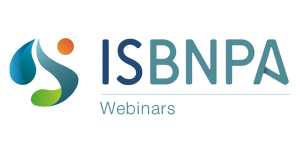Please join ISBNPA.
Recording:
Title:
Integrating Quality of Life Interventions into The Cancer Care Pathway: Translating Challenges into Real World Practice
When:
April 28, 2022, 14:00 GMT
Who:
Speakers:
Adrian Midgley, PhD; Edge Hill University
Alex Bullock, RD, MNutr; University of Hull
Moderators:
Hannah Doughty; PhD student; University of Liverpool
Linda Trinh, PhD; University of Toronto
Rebecca Beeken; Leeds Institute of Health Sciences
Abstract
Cancer is one of the leading causes of death worldwide. People living with and beyond cancer remain at a higher risk of their cancer recurring and are also at risk of developing other chronic health conditions. However, people are now surviving longer following a cancer diagnosis and there is an increasing need to develop interventions to improve patients’ quality of life such as promoting a healthy lifestyle. Professor Adrian Midgley will discuss the ACTivity as medicine In Oncology for Head and Neck (ACTIOHN) trial, which investigates the feasibility of integrating remotely delivered exercise programmes into the pathway for head and neck cancer survivors. Another supportive care intervention to improve quality of life is improving nutrition, sarcopenia and cachexia, all of which are highly prevalent, but under-recognised in older adults with cancer. Alex Bullock will discuss patients’ experiences with these conditions, and the feasibility of screening for, and distinguishing between conditions in a population at risk of developing all three. Overall, attendees will learn the challenges and feasibility of integrating exercise programmes into complex cancer pathways, as well as the feasibility of screening and targeting cancer patients at risk of malnutrition and functional decline.
Individual Abstracts from Presenters
Topic: ACTIOHN Trial: ACTivity as medicine In Oncology for Head and Neck
Presenter: Adrian Midgley, PhD
About Adrian: Adrian completed his PhD in exercise physiology and currently works at Edge Hill University in the United Kingdom. His research focusses on exercise testing and prescription in clinical populations, such as those with head and neck cancer, cardiac disease, and pulmonary disease.
Presentation Abstract: The concept of exercise as medicine for cancer survivors is well established and is supported by considerable empirical research. A major criticism of exercise oncology research, however, is that the individual needs of cancer survivors have largely been ignored, using a ‘one size fits all’ approach to the design and delivery of exercise programmes. Accordingly, attempts at personalisation of exercise programmes in head and neck cancer (HNC) have been limited. The purpose of the ACTivity as medicine In Oncology for Head and Neck (ACTIOHN) trial is to investigate the feasibility of integrating remotely delivered, patient-centred exercise programmes into the clinical pathway of HNC survivors. The exercise programmes will be personalised according to each patient’s currents needs, designed using a collaborative partnership between the patient and a cancer exercise specialist, and include inherent flexibility to allow immediate adaptation to the prescribed exercise to help overcome foreseeable personal and environmental barriers to exercise. This presentation will provide further rationale for the need for patient-centred exercise for HNC survivors and outline the methods that will be used in the ACTIOHN trial.
Topic: Mixed-methods observational study explaining malnutrition, sarcopenia, and cachexia in older adults with cancer
Presenter: Alex Bullock, RD, MNutr
About Alex: Alex is a clinical research fellow in Nutrition, and an Oncology Dietitian, with an interest in nutrition-related wasting disorders.
Presentation Abstract: Malnutrition, sarcopenia, and cachexia are highly prevalent, but under-recognised conditions in older adults with cancer. This presentation will focus on the findings of a mixed-methods observational study, exploring the prevalence, overlap, and understanding of these three conditions in older adults with cancer. This will include qualitative findings of patients’ experiences of the three conditions, and the feasibility of screening for, and distinguishing between, the conditions in a population at high risk of developing all three.


